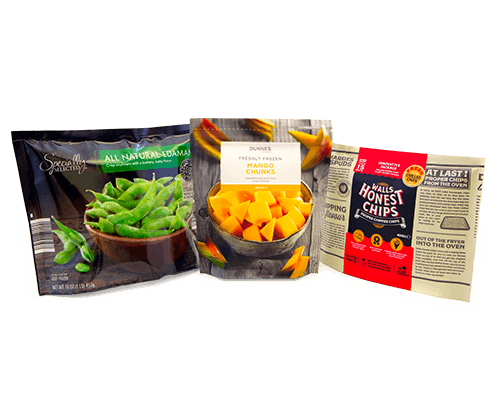As the world grapples with increasing environmental challenges, industries are seeking innovative solutions to reduce their ecological footprint. One such solution gaining momentum is compostable frozen food packaging. This emerging trend not only addresses the pressing issue of plastic waste but also aligns with the growing demand for sustainable practices among consumers and businesses alike. This article explores why compostable frozen food packaging is a game changer for sustainability and its numerous benefits for the environment and the food industry.

1. Reducing Plastic Waste
Traditional frozen food packaging often relies on single-use plastics that contribute significantly to landfill waste and ocean pollution. These materials can take hundreds of years to decompose, harming ecosystems and marine life. Compostable frozen food packaging offers a viable alternative.
- Biodegradability: Made from natural materials such as plant fibers, starches, or bioplastics, compostable packaging breaks down into organic matter within a few months in a composting environment, significantly reducing waste.
- Less Landfill Dependency: By replacing conventional plastics with compostable options, the frozen food industry can significantly decrease its reliance on landfills, contributing to a cleaner environment.
2. Supporting a Circular Economy
Compostable frozen food packaging is integral to the concept of a circular economy, where products are designed to minimize waste and maximize resource recovery.
- Nutrient Return to Soil: When compostable materials break down, they enrich the soil, providing essential nutrients for plants and promoting healthy ecosystems.
- Resource Efficiency: Compostable packaging supports systems where organic waste is repurposed rather than discarded, creating a more sustainable cycle of production and consumption.
3. Enhancing Brand Image and Consumer Trust
In today’s market, consumers are increasingly eco-conscious and prefer brands that prioritize sustainability. By adopting compostable packaging, frozen food companies can enhance their brand image and build trust with consumers.
- Meeting Consumer Demand: As sustainability becomes a critical purchasing factor, brands that invest in compostable packaging can attract environmentally aware customers, fostering brand loyalty.
- Positive Public Perception: Companies that take meaningful steps towards sustainability, such as using compostable packaging, often enjoy a positive public image and increased customer satisfaction.
4. Compliance with Regulations
With governments worldwide implementing stricter regulations on plastic use and waste management, compostable packaging provides a proactive solution for frozen food manufacturers.
- Staying Ahead of Legislation: By transitioning to compostable materials, companies can ensure compliance with current and future regulations, mitigating the risk of fines and enhancing their market competitiveness.
- Corporate Responsibility: Embracing sustainable practices demonstrates a commitment to corporate social responsibility, aligning with global efforts to combat plastic pollution.
5. Innovations in Packaging Technology
The development of compostable frozen food packaging has spurred innovation in materials and design, leading to new possibilities for manufacturers.
- Advanced Materials: Innovations in bioplastics and plant-based materials are making compostable packaging more versatile, durable, and suitable for various frozen food products.
- Custom Solutions: Companies can work with packaging suppliers to develop tailored compostable solutions that meet specific needs, ensuring functionality while promoting sustainability.
6. Waste Management and Composting Infrastructure
The rise of compostable packaging encourages the development of composting infrastructure, enhancing waste management systems.
- Promoting Composting Programs: Increased adoption of compostable packaging can lead to more robust composting initiatives in communities, making it easier for consumers to dispose of packaging responsibly.
- Collaboration Opportunities: Businesses can partner with local governments and organizations to create comprehensive composting solutions, contributing to a more sustainable waste management landscape.
7. Long-Term Cost Benefits
While compostable packaging may initially appear more expensive than traditional options, it can offer long-term cost savings for businesses.
- Reduced Waste Disposal Costs: Companies may experience lower waste disposal fees by decreasing the volume of non-compostable waste sent to landfills.
- Market Positioning: As consumer preferences shift towards sustainability, companies that adopt compostable packaging can strengthen their market position, potentially leading to increased sales and profitability.
Conclusion
Compostable frozen food packaging represents a significant leap forward in sustainability, addressing the critical issues of plastic waste, resource efficiency, and consumer demand. By embracing compostable solutions, the frozen food industry can not only reduce its environmental footprint but also enhance its brand reputation and ensure compliance with evolving regulations.
For businesses looking to make this important shift, partnering with innovative packaging suppliers like Colorful Packaging can provide access to high-quality compostable materials designed for various frozen food applications. As we strive for a more sustainable future, compostable packaging will undoubtedly play a pivotal role in creating a healthier planet for generations to come.


